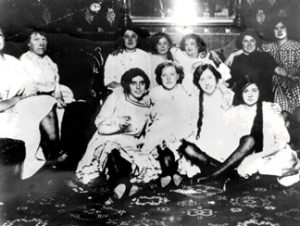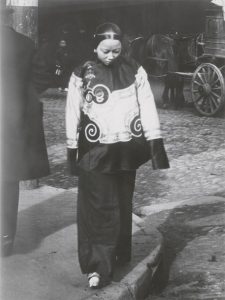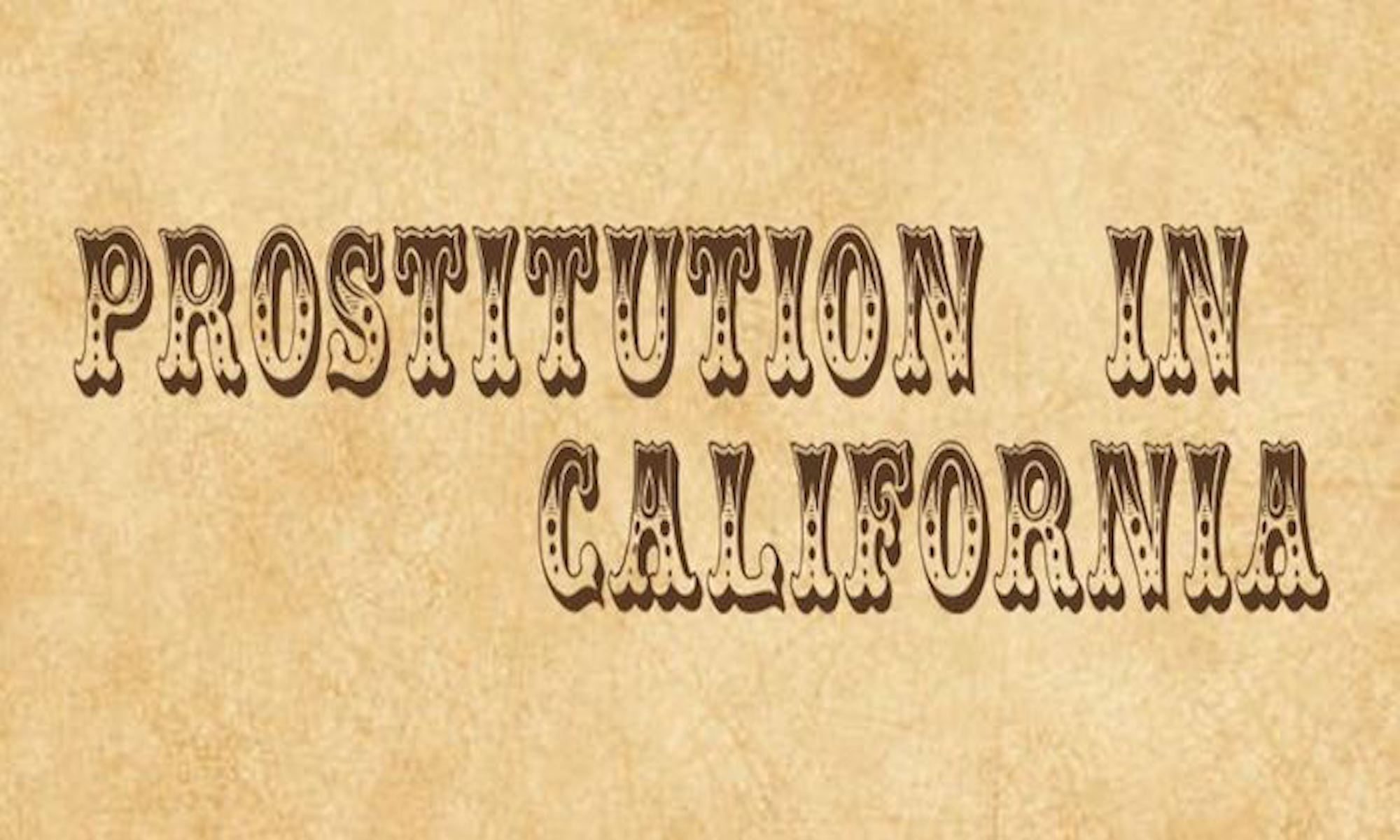From the frontiers of the west to the modern legal battle to rescind years of politics, prostitution has touched upon social and political life in California and helped, in part, to shape its history. Current efforts to challenge the current political landscape regarding prostitution are being spearheaded by a group named COYOTE, formed by Margo St. James, a feminist and former prostitute who argues in favor of the legalization of prostitution.

The Californian Gold Rush saw the mass exodus of men leaving the eastern United States to rush westwards in hopes of finding gold and becoming rich. The scarcity of women along with the promise of gold served to motivate women from all over the world to migrate to this area after the men. With many jobs off-limits to women, prostitution soon presented itself as the only economic options for these women. Prostitution, then, afforded these women with economic opportunity, with one recorded prostitute retiring after making fifty thousand dollars in 1850. This influx of women from around the world began a process of discrimination against those women who were not of European descent.

The scarcity of women saw the import of Chinese women to America, oftentimes kidnapped, lured or bought from China to be brought to America to be sold into sexual slavery. Examples of European prostitutes, such as French women who had travelled to California during this time, were of women who “wore stunning clothes and could turn men inside out with their winning ways.” These accounts differ from those of non-European prostitutes, who were often discriminated against and, according to one newspaper critic, reviled for their disgusting and disgraceful behavior. This discrimination helped to bring about some of the first order of anti-prostitution legislation, when the San Francisco Board of Supervisors wrote an “Order to Remove Chinese Women of Ill-Fame from Certain Limits in the City,” in 1865, and a year later the California senate approved “An Act for the Suppression of Chinese Houses of Ill-Fame.” In 1870, the state passed “An Act to Prevent the Kidnapping and Importation of Mongolian, Chinese, and Japanese Females for Criminal or Demoralizing Purposes.” Though these rulings specifically targeted Chinese prostitutes almost exclusively, the California legislature continued these efforts on a much wider scale by passing the Red-light Abatement Act in 1914 which targeted brothels and prostitutes, hoping to curtail prostitution. This act, however, would serve only to produce more streetwalkers, those who were forced to solicit their services on the street, creating a much more dangerous situation for women who worked in the profession. However, organizations such as COYOTE, led by individuals like Margo St. James, would attempt to fight this.
Born in 1937, Margo St. James is a sex-positive feminist and former prostitute. In the preface to A Vindication of the Rights of Whores, St. James describes her decision to involve herself in prostitution and sex-positive activism as stemming from a judge who declared her guilty of prostitution due to her knowledge of the term “trick.” After this, St. James would set out creating the first of two organizations that argued for the legalization of prostitution, WHO (Whores, Housewives and Others). WHO would subsequently be replaced by COYOTE in 1973, COYOTE standing as an acronym for Call Off Your Old Tired Ethics. These organizations have made current efforts to turn around the legislation prohibiting prostitution in California and have made small successes along the way.
COYOTE’s work in California is not simply the repeal of laws, but of societal attitudes and understandings surrounding prostitution. COYOTE was instrumental in organizing the California Prostitute’s Education Program (CAL-PEP for short), an organization that works to educate women engaged in prostitution about “safer sex and drug use practices.” COYOTE also successfully fought against the San Francisco police’s practice of testing unwilling women arrested for prostitution for sexually transmitted diseases and making them choose between immediate release with antibiotics or waiting in jail for two weeks until results returned. COYOTE has also helped to provide employment opportunities for former prostitutes. Gloria Lockett is the current executive director for CAL-PEP and a former prostitute who had been arrested many times in her line of work, and currently serves COYOTE as best she can working with anyone that needs help while providing employment opportunities to other “ex-” prostitutes.
In the present day, there are numerous laws to be overcome in the repeal of anti-prostitution legislation. As of 1986, Helen Reynolds lists the laws under California Penal Codes 290, 647b, 647c, and 650.5 in her book The Economics of Prostitution. Alongside these, prostitutes can be arrested for violation of codes 288a, 311.2, 315, 316, 318, 647b, 340b and parts of 266 and 267. All these provide different facets for the justice systems to persecute prostitutes under the law. Not all of these laws deal strictly with prostitution, either. Offenses ranging from prostitution to obstruction of the sidewalk all hold legal precedents to charge prostitutes and imprison them. As previously stated, this is an older list of laws, but the stance towards prostitution in California has not changed. However, it might in the near future.
Currently, California legislation is being challenged by a lawsuit in the 9th US Circuit Court of Appeals in San Francisco. The judge presiding over the case has asked “Why should it be illegal to sell something that it’s legal to give away?” Initiated by three sex workers in California who argue against the unfair treatment of women under prostitution laws, as they are more likely to be arrested than the men who hired them. The attorney for the plaintiffs is looking towards earlier laws that had decriminalized homosexual conduct between consenting, legal adults. Arguments in favor of the decriminalization of prostitution assert that voluntary engagement in prostitution currently puts those involved in it in great danger, as they cannot turn to police for protection should they be threatened.
The legalization of prostitution stands to this day a controversial point in political and social circles. There are multiple ideas to consider when debating it and many decades of thinking to critically examine. The future of legislation against prostitution is uncertain, but the fighters of COYOTE stand ready to keep up the fight for those prostitutes whom have been targeted by the law.

